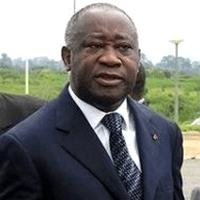To trace the deterioration of Côte d'Ivoire from 2002, when a civil war pitted north against south, through Oct. 31, 2010, when ballots were cast in a presidential election five years overdue, one only needs to look at the dance trends that came and went during that time in the nightclubs, living rooms and village squares around the nation.
First there was 2002's "Coupé-Décalé," which roughly translates to "Cut and Run." Then in 2004, the theme was "Abidjan Est Gâté" ("Abidjan Is Ruined"), a lament about the fate of the economic capital, Abidjan. In 2006, people flapped and squawked their way through the Bird Flu dance. Then in the midst of the economic downturn in 2008, when food prices soared and incomes plummeted, "Bobaraba" ("The Big Booty") took the nation by storm, a nostalgic reminder of the time when Ivorian women had posteriors to match the country's economic success.
But for the more than 80 percent of eligible voters who lined up on Sunday to cast their ballots in first-round voting to determine which two of the 14 candidates will contest the run-off set for the end of November, the current dance craze consists of gliding movements and yawns, set to a Zouglou beat accompanying top DJ Francky DeCaprio's lyrics: "On Est Fatigué" ("We Are Tired").

